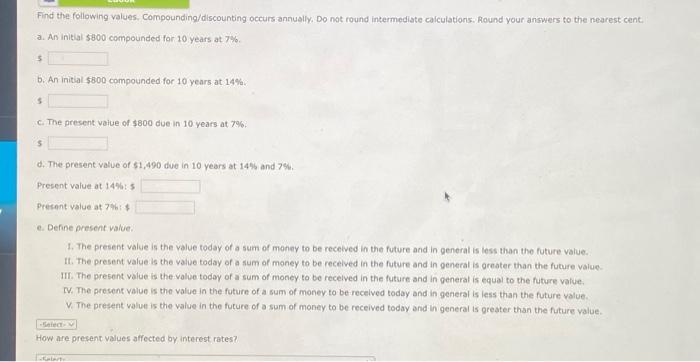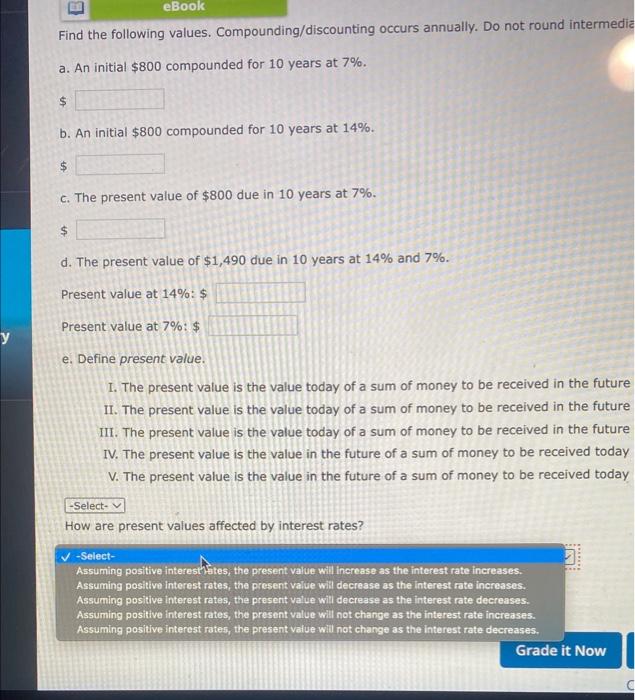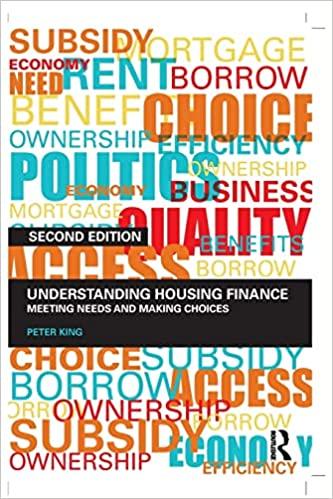Answered step by step
Verified Expert Solution
Question
1 Approved Answer
Find the following values. Compounding/discounting occurs annually. Do not round intermediate calculations. Round your answers to the nearest cent. a. An initial $800 compounded for
Find the following values. Compounding/discounting occurs annually. Do not round intermediate calculations. Round your answers to the nearest cent. a. An initial $800 compounded for 10 years at 7%. $ b. An initial $800 compounded for 10 years at 14%. $ c. The present value of $800 due in 10 years at 7%. $ d. The present value of $1,490 due in 10 years at 14% and 7%. Present value at 14%: $ Present value at 7%: $ e. Define present value. I. The present value is the value today of a sum of money to be received in the future and in general is less than the future value. II. The present value is the value today of a sum of money to be received in the future and in general is greater than the future value. III. The present value is the value today of a sum of money to be received in the future and in general is equal to the future value. IV. The present value is the value in the future of a sum of money to be received today and in general is less than the future value. V. The present value is the value in the future of a sum of money to be received today and in general is greater than the future value. -Select- How are present values affected by interest rates? -Select-


Step by Step Solution
There are 3 Steps involved in it
Step: 1

Get Instant Access to Expert-Tailored Solutions
See step-by-step solutions with expert insights and AI powered tools for academic success
Step: 2

Step: 3

Ace Your Homework with AI
Get the answers you need in no time with our AI-driven, step-by-step assistance
Get Started


